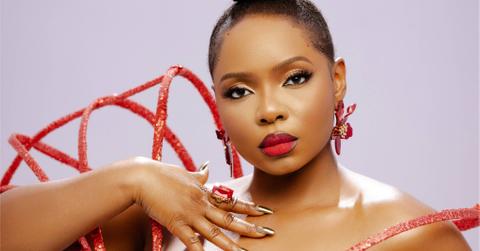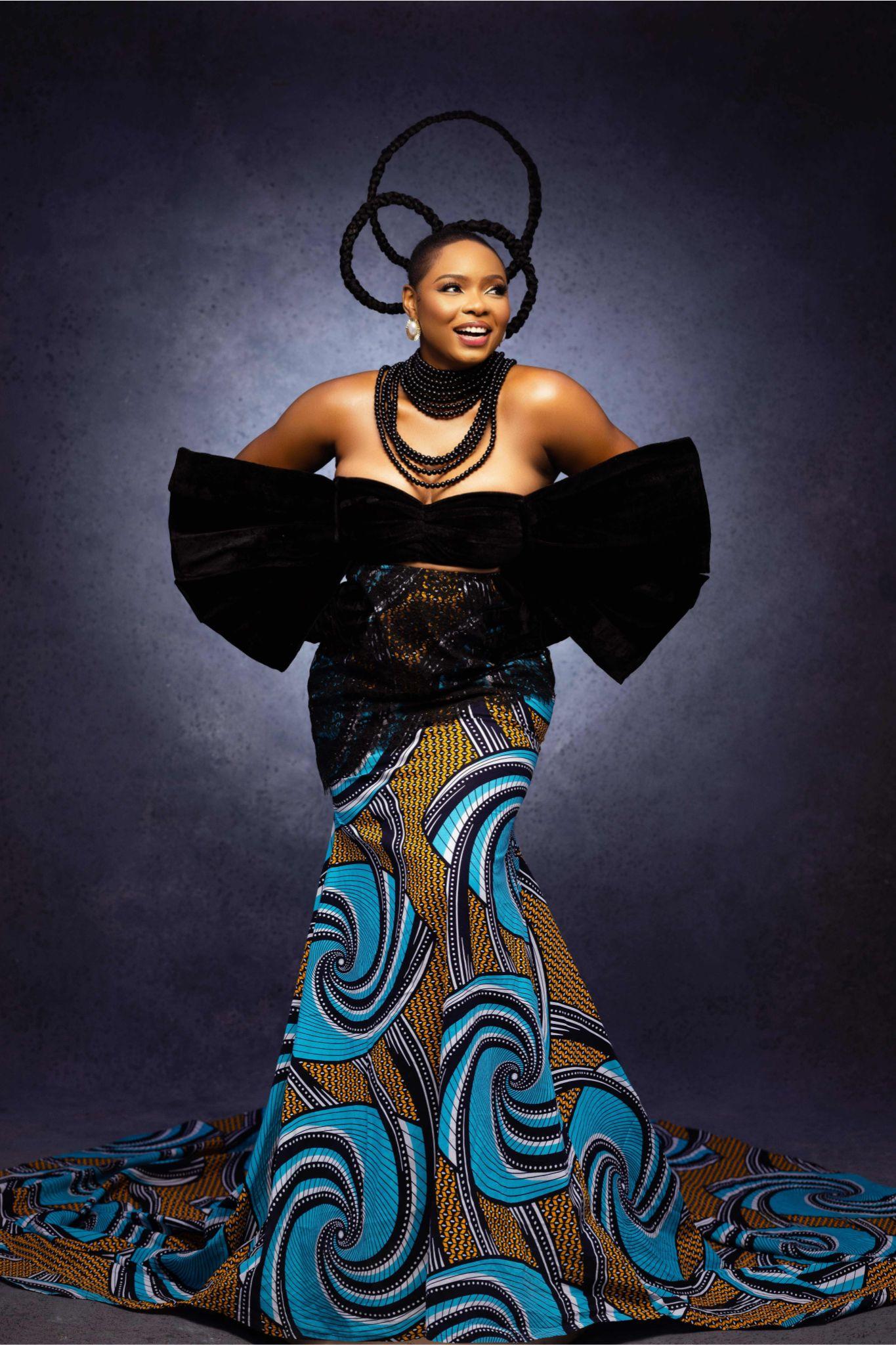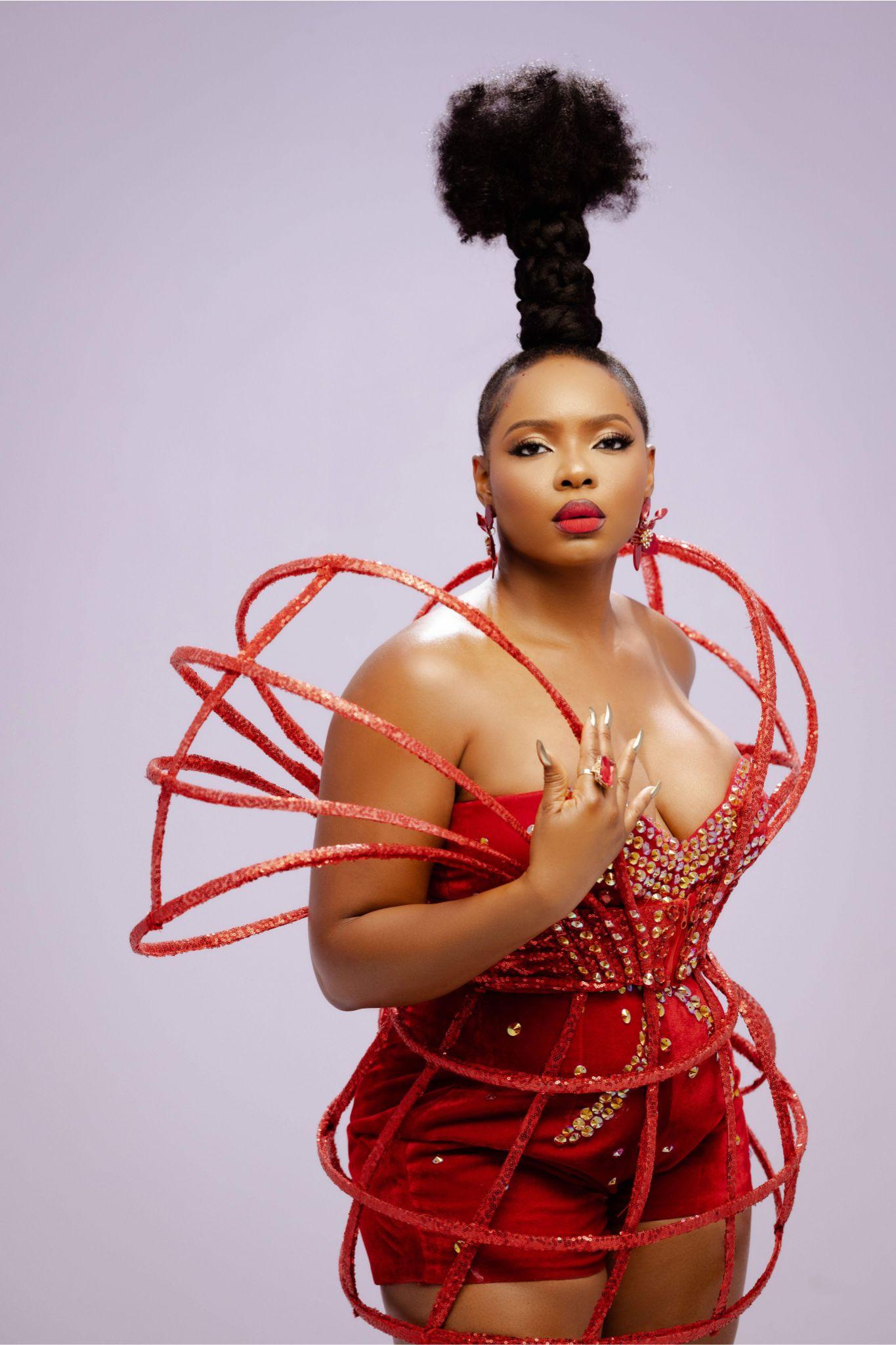
Yemi Alade: Reigning as the Rebel Queen
Yemi Alade's unwavering commitment to originality shines through in Rebel Queen, as she reflects on staying true to herself in a music industry often driven by trends.
By Deonte ChalantApril 30 2025, Published 3:20 p.m. ET

Yemi Alade has established herself as a trailblazer in African music. The release of her latest album, Rebel Queen, marks yet another milestone in her illustrious career. As the world embraces the album, Yemi Alade is basking in the glow of its success and reflecting on her journey, which has made her the formidable artist she is today.
Bleu: Your album Rebel Queen is out and making the rounds. How are you feeling now that it has been released?
Yemi Alade: “I am overwhelmed with joy from the positive feedback, and I honestly feel this is my best body of work to date.”
Bleu: The title Rebel Queen is powerful and evocative. What inspired this title, and how does it reflect your journey in the music industry?
Alade: “The Rebel Queen title is inspired by me. I have continuously rebelled against popular opinion or the status quo, how people expect me to dress, sing, and show up. I continue to be myself and choose my own way of life. I have rebelled for so long; I am a Rebel Queen.”
Bleu: You blend many genres on the album, from Afropop to reggae to Amapiano. How do you create such a diverse sound while maintaining a cohesive album?
Alade: “It’s a beautiful thing to share with the world. If you ever get the opportunity to experience me on stage, you will see that I always present many genres. I grew up in a huge household where the age range was wide and apart. So, I was listening to music that I ordinarily would not have listened to as a kid because I had much older cousins, uncles, and aunties. So, that has come together to create the person I am today in terms of my choice of sound, and that is also what I present in my album. I guess that is when the cohesion is right there in your face because it is, originally, who I am.”
Bleu: Speaking of your live performances, you are often regarded as one of the best performers from the continent. How do you prepare for your shows, and what can fans expect from the upcoming Rebel Queen tour?
Alade: “I can’t give away the secrets, lol. Well, I can say rehearsals, rehearsal, and more rehearsals. I rehearse with the musical band first and then the dance team, and then we all come together under one roof and rehearse together. It takes weeks and months to rearrange music. I don’t like only presenting the original version of the music that the audience already knows. I want to surprise my listeners because I also have fun on stage. I put in time to rehearse, recreate, restructure, have fun on stage, surprise my people, and make sure that they are performing with me as much as I am performing for them.”
Bleu: In tracks like “African Woman” and “Peace and Love,” you tackle themes of empowerment and compassion. How important is it for you to use your platform to convey these messages?
Alade: “It’s very important for me to sing melodies to inspire. We live in a world where a lot of people have opinions, especially what someone can and cannot do. I believe that changing the world starts with you, your beliefs, and where you stand in your own life. I always try to encourage people to be themselves and to go for what they want relentlessly, even when the world is saying no. It’s important to applaud yourself, so even when the world is not applauding, you don’t need to rely on that to stay consistent.”
Bleu: You mentioned that this album carries a lot of nostalgia for you. Can you share a specific memory or influence from your past that played a significant role in shaping Rebel Queen?
Alade: “One of the genres I fell in love with early in my life is highlife, the primary genre I worked within on this album. My mom, from the eastern part of Nigeria, introduced highlife to me at an early age. In Nigeria, highlife is the core of their music, which is the core of my music now.”

Bleu: For someone who may not be familiar with highlife, what characteristics best describe that genre?
Alade: “I would say the first thing is the guitar. There is a way that both the lead and bass have distinctive melodies. The second you hear it, you know you are in for a good time. The second thing that is distinctive about highlife is the storytelling. It's like a storytime instrument.”
Bleu: Your career has been marked by groundbreaking achievements, from your Grammy win to global tours. Looking back, what do you consider the most pivotal moment in your journey so far?
Alade: “I’m lost for words…. In 2017, I had my first solo world tour, which included over 50 countries. Almost every venue was packed out from stage to the door. It was such a huge moment for me because I recorded all these songs in my little studio in my own little corner, and now these songs have reached the entire world. That moment is when it dawned on me that success was at my door.”
Bleu: As someone at the forefront of African music, what makes it resonate outside the continent and appeal to such a global audience?
Alade: “I think the why is that we have retained our originality throughout the generations. I also believe our musicians, particularly Nigerian musicians, are resilient, and our standards are not limited to our colleagues; we are competing with the entire world. So, when we create, we want world standards and global competition.”
Bleu: You’ve collaborated with other global icons like Beyoncé and Angélique Kidjo. How have these collaborations influenced your artistry, and what have you learned from working with them?
Alade: “I have been so blessed to collaborate with artists who have inspired me. Beyoncé, for instance, is a musician to whom I grew up listening. I realize from her stagecraft that performances don’t have to be elementary, as far as an artist is concerned, just holding a mic. I can vividly see that a performance can be an entire show, a proper setup, so I emulated that from her. As far as Angélique Kidjo, her existence is significant to my generation, the one before me, and even the generation coming. She is like my musical mother. Everyone I have collaborated with has inspired me, knowing or unknowingly.”
Bleu: What’s next for you?
Alade: “Rebel Queen took two years to complete, so it can't be digested in a month or two. I am releasing videos for the singles on the album. So, as of now, I will continue to release visuals in support of the album and bask in the moment.”

